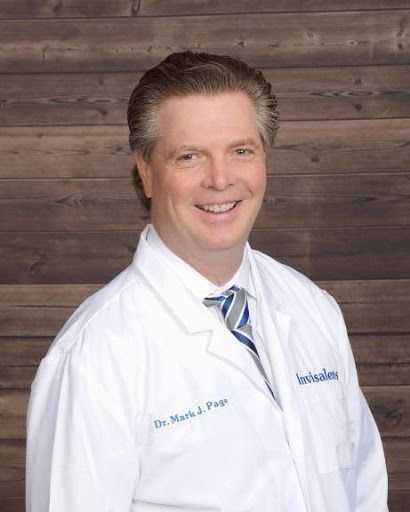Arizona's Vision Eye Care Center
Opening Hours
Mon-Thu: 9:00AM - 6:00PM Friday: 8:00AM- 5:00PM
Our Location
15215 S. 48th Street #180 Phoenix, AZ 85044
Call NOW
Is it better to see an optometrist or ophthalmologist for dry eye?
Introduction
For dry eye treatment, see an optometrist for mild symptoms and an ophthalmologist for severe cases in Phoenix. Dry eyes cause irritation, burning, and blurry vision that impact daily life. These symptoms can worsen without proper care.
Our eye care experts have treated thousands of dry eye patients across Phoenix. We understand which specialist matches your specific symptoms and severity level.
This guide will help you choose the right eye doctor for your dry eye condition. You'll learn when to see each specialist and what treatments they offer.

When to See an Optometrist for Dry Eye
Optometrists handle most common dry eye cases effectively. They provide primary eye care and can diagnose many causes of dry eye syndrome. Most patients should start their dry eye treatment journey with an optometrist.
Initial symptoms
Optometrists can evaluate early dry eye symptoms quickly. They look for redness, irritation, and mild discomfort. Your optometrist will check for common causes like screen time or environmental factors.
Routine eye exams
Regular eye exams with optometrists catch dry eye problems early. They perform tests measuring tear production and quality. These exams often reveal dry eye disease before symptoms become severe.
Common eye conditions
Optometrists treat everyday eye conditions including mild to moderate dry eye. They prescribe artificial tears, recommend lifestyle changes, and monitor your progress. Most patients find relief through these first-line treatments.
Lack of response to basic treatment
When basic treatments don't work, optometrists refer to specialists. They recognize when your condition needs advanced care. Your optometrist coordinates with ophthalmologists for complex cases.
When to See an Ophthalmologist for Dry Eye
Ophthalmologists treat more complex dry eye cases. These medical doctors specialize in advanced eye diseases and surgical solutions. They handle cases that optometrists cannot resolve.
Severe or worsening symptoms
Ophthalmologists manage intense dry eye symptoms that persist. They address severe pain, extreme dryness, and constant irritation. These specialists offer stronger medications and procedures for relief.
Sudden vision changes
Vision changes with dry eye require immediate ophthalmologist attention. They evaluate sudden blurriness or vision loss. Your ophthalmologist will rule out serious conditions affecting your sight.
Complex medical conditions
Patients with autoimmune disorders often need ophthalmologists for dry eye. They understand how conditions like Sjögren's syndrome affect eyes. Your ophthalmologist coordinates with your other doctors for comprehensive care.
Need for surgery or specialized procedures
Ophthalmologists perform surgical procedures for severe dry eye. They insert punctal plugs to block tear drainage. These doctors can perform specialized surgeries when necessary.
Complex dry eye
Advanced ocular surface disease requires ophthalmologist expertise. They treat severe meibomian gland dysfunction and inflammatory conditions. Ophthalmologists offer specialized treatments like intense pulsed light therapy.
Urgent Eye Symptoms Requiring Same-Day Ophthalmology or ER
Sudden Vision Loss, Severe Eye Pain, or Photophobia
These symptoms need immediate medical attention. They may indicate serious conditions beyond dry eye. Go to an emergency room or ophthalmologist immediately.
New Flashes/Floaters or “Curtain” in Vision
These symptoms could signal retinal detachment requiring urgent care. Don't wait for an appointment if you experience these changes. Seek emergency eye care right away.
Chemical Burn or Marked Redness with Discharge
Eye injuries or infections need immediate professional attention. Flush chemical exposures with water before seeking help. These conditions can cause permanent damage without proper care.
What Else Can an Optometrist Do for Dry Eye?
Optometrists provide comprehensive dry eye evaluation beyond basic care. They perform specialized tests like Schirmer's test to measure tear production. Many optometrists now offer advanced treatments previously only available from ophthalmologists.
Dry Eye Treatments by Optometrists & Ophthalmologists in Phoenix
Lifestyle & over-the-counter aids
Both specialists recommend simple solutions first. They suggest humidifiers, screen breaks, and proper hydration. These professionals help you choose the right artificial tears.
Prescription drops & plugs
Doctors prescribe medications like Restasis or Xiidra for chronic dry eye. They insert temporary or permanent punctal plugs. These treatments help maintain moisture on your eye surface.
Advanced therapies & surgery
Severe cases may need specialized treatments from ophthalmologists. They perform procedures targeting oil glands or tear production. These advanced options help when standard treatments fail.
Find Relief From Dry Eye Disease
Dry eye relief starts with choosing the right specialist. Most patients should begin with an optometrist for evaluation. Severe or complex cases benefit from ophthalmologist expertise.
Key Takeaway for Phoenix Seniors With Dry Eye
Seniors often experience dry eye due to aging and medications. Start with an optometrist for mild symptoms and routine care. See an ophthalmologist for severe symptoms or when basic treatments fail.
At Arizona's Vision Eye Care Center, we provide comprehensive dry eye care. Our team includes both optometrists and ophthalmologists working together. Contact us today to find the right dry eye treatment for your specific needs.

Looking for top eye care in Phoenix? Our expert optometrists provide quality vision exams, glasses, and contacts. Book your appointment today!